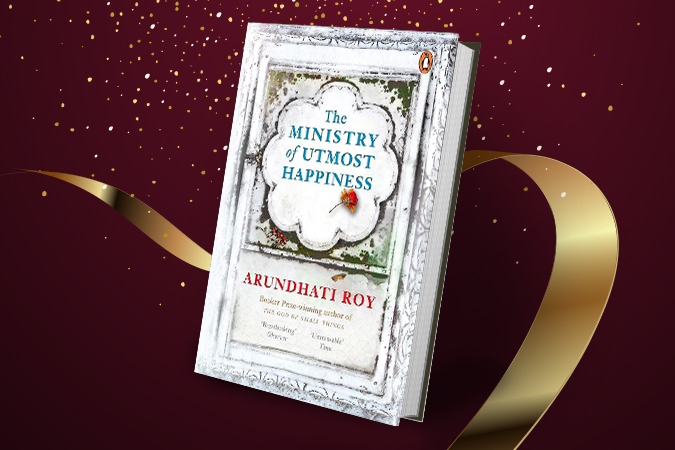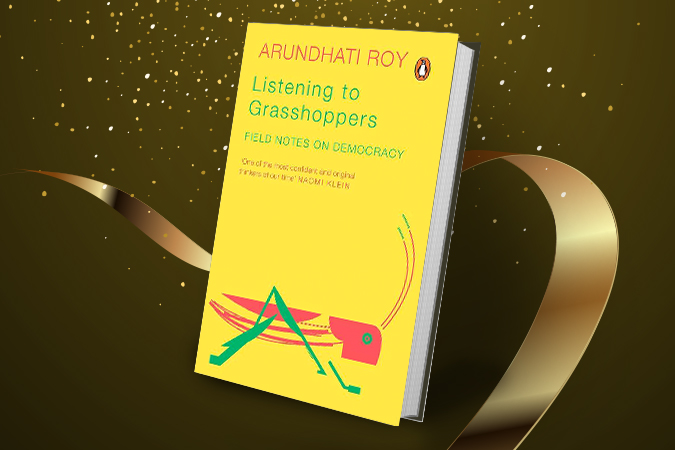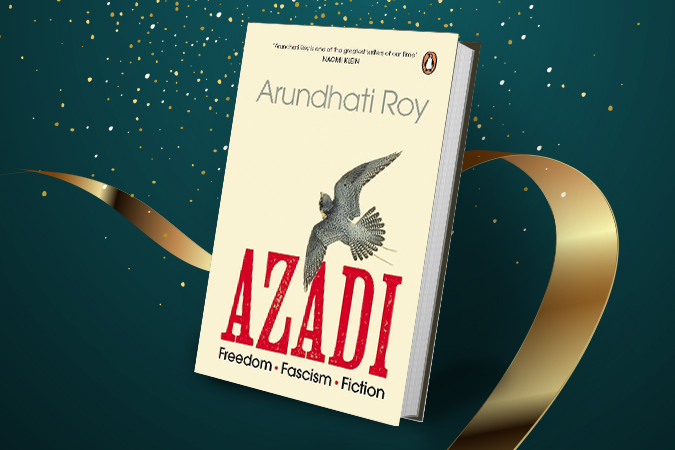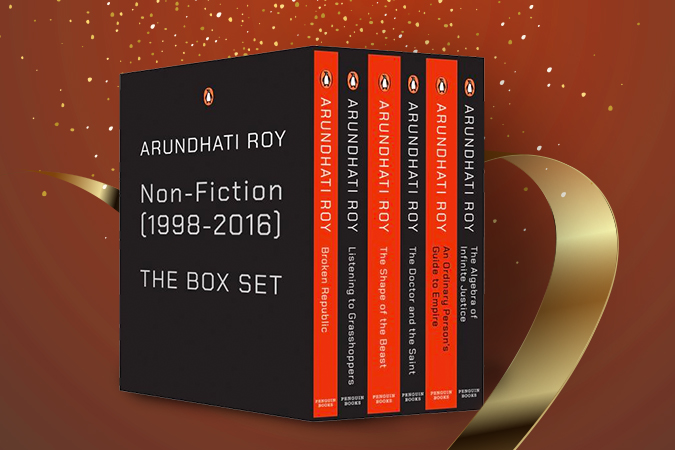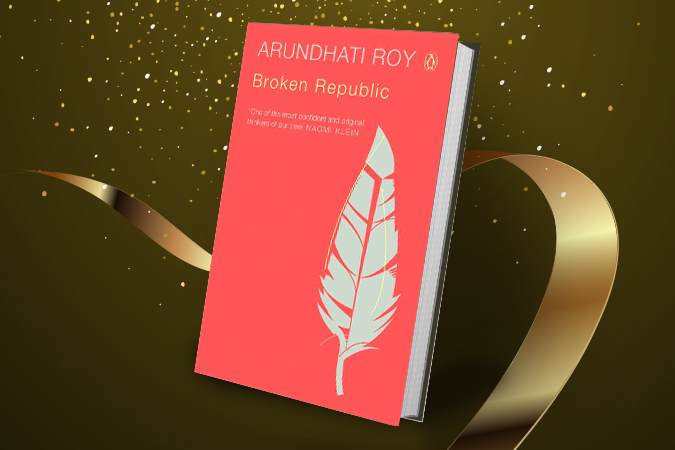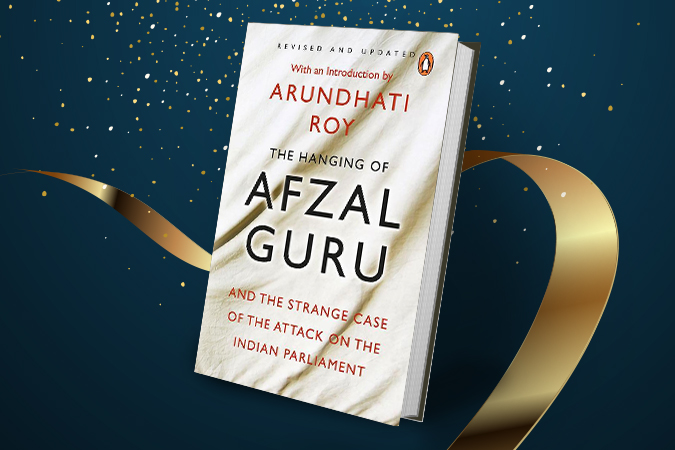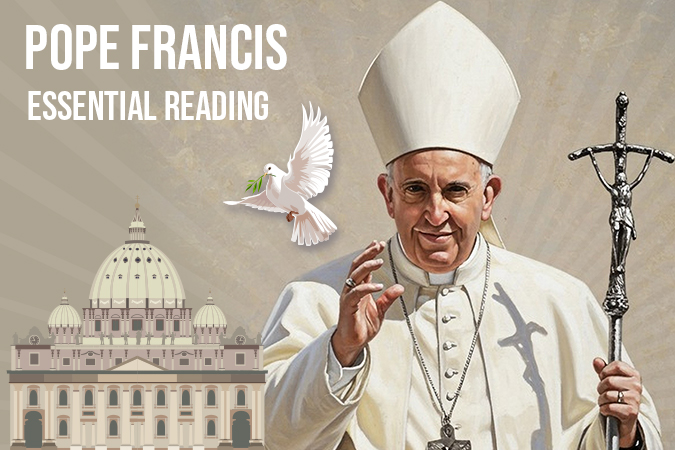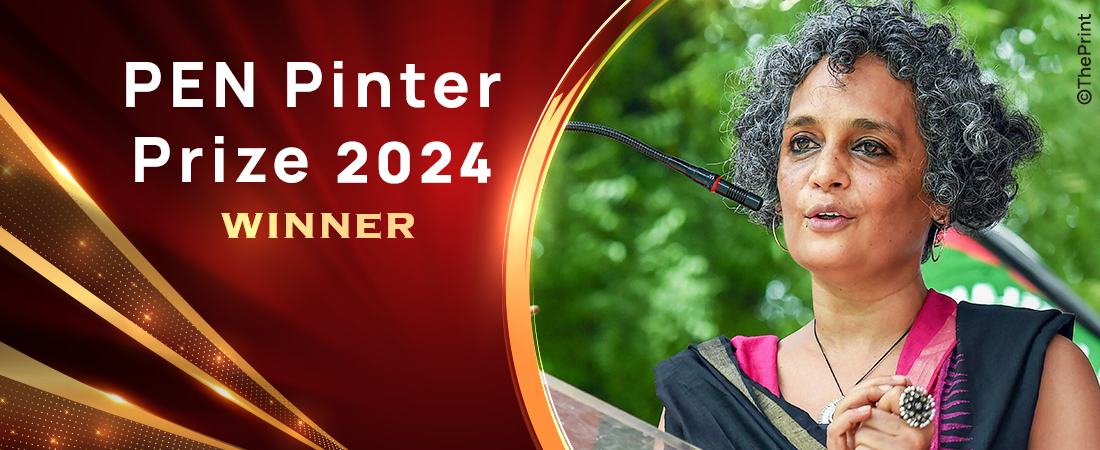
Here’s everything you need to know about this incredible achievement and why it matters
In a momentous announcement last month, acclaimed Indian author Arundhati Roy has been awarded the 2024 PEN Pinter Prize. The Prize is awarded annually to a writer of exceptional literary talent who demonstrates a strong commitment to addressing social issues and speaking out against injustice. Incidentally, this announcement comes two weeks after a legal action initiated against Roy under an anti-terror law pertaining to a political statement she had made in 2010.
Ruth Borthwick, Chair of English PEN, praised Roy’s storytelling: “Roy tells urgent stories of injustice with wit and beauty. While India remains an important focus, she is truly an internationalist thinker, and her powerful voice is not to be silenced.”
Actor and activist Khalid Abdalla, a co-chair of the award, added, “Her books, her writings, the spirit with which her life is lived, have been a lodestar through the many crises and the darkness our world has faced since her first book, The God of Small Things.”
Roy will receive the award at a ceremony co-hosted by the British Library on 10 October 2024, where she will also deliver an address. The prize will be shared with a Writer of Courage, selected by Roy from a shortlist of cases supported by English PEN, highlighting a writer who defends freedom of expression at great personal risk.
What is the PEN Pinter Prize?
The PEN Pinter Prize, established in 2009 in the memory of Nobel-Laureate playwright Harold Pinter, honours writers of outstanding literary merit who, in the words of Pinter’s Nobel Prize speech, cast an “unflinching, unswerving” gaze upon the world and show a “fierce intellectual determination to define the real truth of our lives and societies.” The recipient is typically someone whose work combines literary excellence with a profound sense of moral responsibility and courage.
The PEN Pinter Prize is awarded annually to a writer resident in the United Kingdom, the Republic of Ireland, the Commonwealth or former Commonwealth.
The prize, co-hosted by English PEN and the British Library, includes a ceremony where the winner shares the spotlight with a Writer of Courage, someone who has faced significant risks to uphold freedom of expression.
Arundhati Roy’s selection for the 2024 PEN Pinter Prize is a testament to her enduring impact on literature and society. The judges praised her for telling urgent stories of injustice with wit and beauty. Roy’s acceptance speech echoed her commitment to continuing the fight for truth in a world that desperately needs it.
Who is Arundhati Roy?
Suzanna Arundhati Roy is an Indian author who is best known for her debut novel The God of Small Things (1997), which has bagged multiple awards including The Booker Prize for Fiction (1997), making her the first Indian to win it. Her storytelling prowess and lyrical prose have captivated readers worldwide. Beyond her fiction, Roy is a fierce activist, known for her eloquent non-fiction that tackles pressing social and political issues.
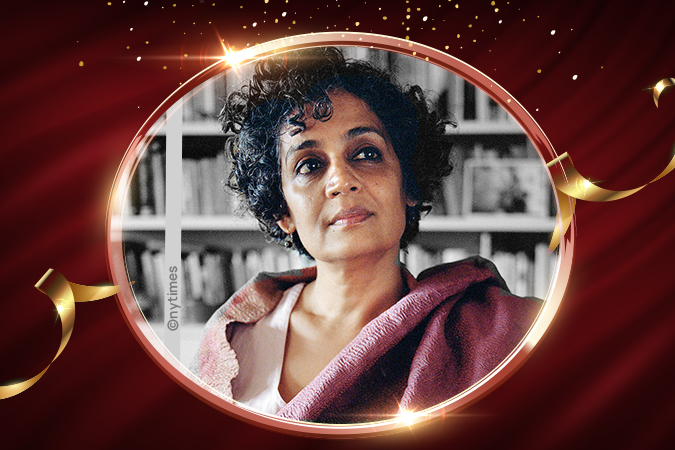
Influence: Roy’s influence extends beyond her literary achievements. She is a vocal critic of injustice and a powerful advocate for marginalized communities. Her work often intertwines personal narratives with broader social themes, providing a voice to those who are often unheard. Her second novel, The Ministry of Utmost Happiness, continued this tradition, exploring the lives of India’s disenfranchised.
Popularity and Controversies: Roy’s bold stances have not been without controversy. She has faced criticism for her outspoken views on issues such as nationalism, environmental degradation, and human rights. However, her unwavering commitment to truth and justice has earned her a loyal following and significant respect in literary and activist circles.
God of Small Things: Booker Prize Winner
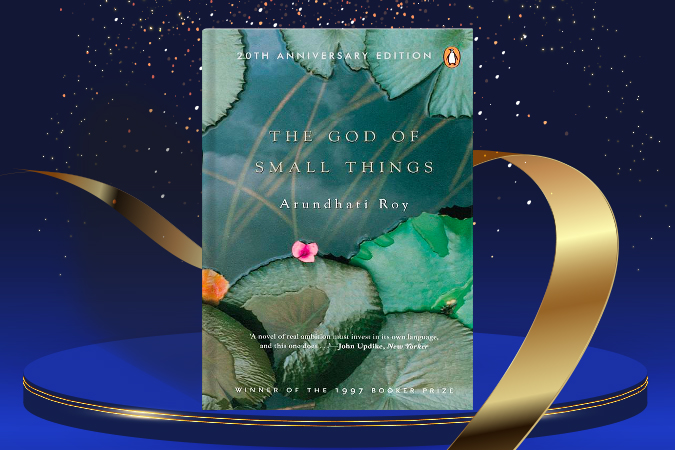
Roy started working on her first novel, The God of Small Things, in 1992 and completed it in 1996. This semi-autobiographical novel bears testimony to her childhood spent in Aymanam, a village in Kerala.
The novel explores the tragic and deeply affecting story of twins Rahel and Estha, who are haunted by a pivotal childhood event involving their family in Kerala, India. The novel delves into themes of social discrimination, forbidden love, and the harsh consequences of breaking societal norms. Roy’s lyrical prose captures the small, often overlooked moments and decisions that shape our lives, underscoring how the smallest things can have profound impacts.
Not only did this book catapult her to international fame, Roy received the 1997 Booker Prize and made it to The New York Times Notable Books of the Year list. Her work ranked fourth on The New York Times Bestsellers list for Independent Fiction and was named as one of the five best books of 1997 by Time Magazine.
Books By Arundhati Roy: A Selection
The Ministry of Utmost Happiness (Fiction): This novel explores the deep and evolving friendship between Sam and Sadie, two video game designers who collaborate on successful games while navigating personal and professional challenges. A poignant tale about love, creativity, and the messiness of friendships that drift in and out while struggling to pursue one’s dreams.
Listening to Grasshoppers (Non-fiction): It is a powerful collection of essays, exploring critical social and political issues in India. This pitch-perfect prose contains her advocacy of adivasis, Naxals and even the citizens killed in the 2002 Gujarat riots. Her eloquent prose and sharp analysis make this work a compelling critique of systemic injustices and a call to action for social change.
Azadi (Non-fiction): Roy was felicitated with the lifetime achievement award at the 45th European Essay Prize for the French translation of her book Azadi. It is a collection of essays that examines the concept of freedom in the context of contemporary Indian politics, including discussions on nationalism, the rise of Hindu fundamentalism, and the ongoing conflict in Kashmir.
The Algebra of Infinite Justice (2001) (Non-fiction): A thought-provoking essay on the dangers of capitalism and the damage caused by wars. A must-read for anyone who wants to understand the tricky issues that are unique to this nation and the slow erosion of our freedoms. Roy’s sharp analysis and eloquent prose offer a compelling critique of contemporary socio-political dynamics.
Broken Republic (2011) (Non-fiction): In this provoking and perspective-building work, Roy exposes the nexus between corporations and the Indian State who use the excuse of development to deprive the poor of their native lands so that they can be mined. Through her vivid writing and critical analysis, Roy sheds light on the human cost of industrialisation and the ongoing struggle for indigenous rights.
The Hanging of Afzal Guru and the Strange Case of the Attack on the Indian Parliament (2006) (Non-fiction): On December 13, 2001, five armed men dove into the Indian parliament in a car loaded with explosives to blow it up. The conspirators were arrested and put on death row. While two accused were successfully acquitted, Afzal could not be saved. The book is a collection of essays that show it is possible that there has been a miscarriage of justice on Afzal.

